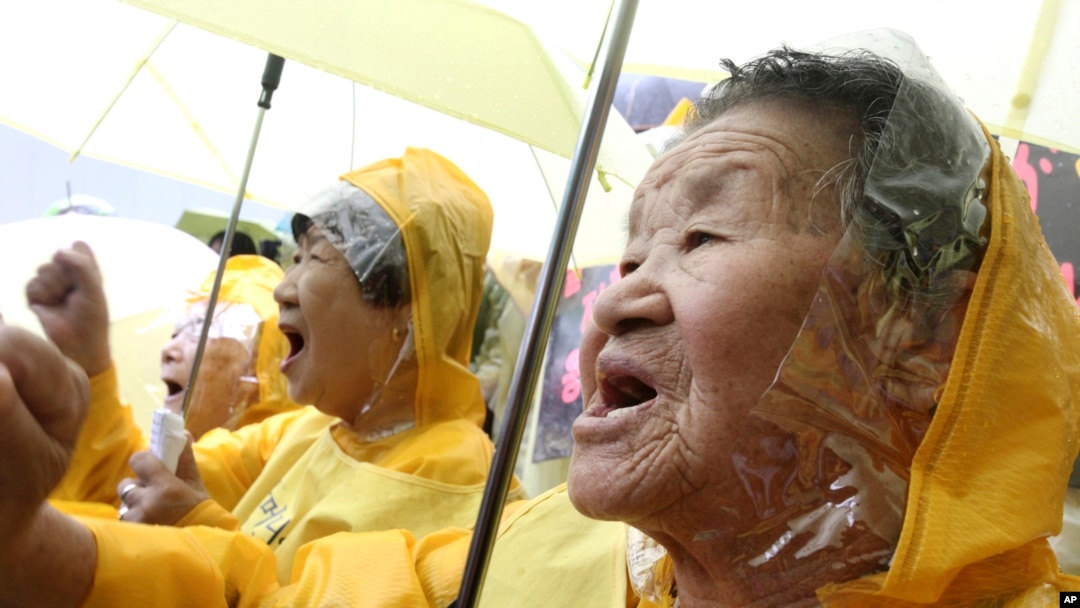North Korea has urged Japan to address North Korean “comfort women” in its efforts to resolve disputes over the issue with neighboring South Korea.
As many as 200,000 women, mostly from Korea and China, were forced into the Japanese Army’s brothels during World War II. Seoul and Tokyo have been at odds over how to portray the Japanese Army’s wartime atrocities since Japanese Prime Minister Shinzo Abe took office in December, 2012.
Earlier this week, the two sides agreed to accelerate talks over the issue during the first summit meeting in more than three years.
“This issue can hardly find a final solution unless the damage suffered by all Koreans is redressed throughout Korea because there are victims of the sexual slavery of the Imperial Japanese Army not only in the south of Korea but also in the north,” said a spokesperson for North Korea’s Foreign Ministry in a statement carried by the country’s state-controlled media Korean Central News Agency.
Pyongyang has claimed compensation from Tokyo for the aggression in the past, but the latest move comes at a delicate time. North Korea is facing growing criticism for its human rights record.
Last week, Japan and the European Union circulated a draft U.N. resolution that calls for tougher measures against North Korea for human rights abuses. Japan has been actively involved in the U.N. efforts to condemn human rights violations in North Korea, sponsoring resolutions, over a decade.
Delicate timing
Yang Moo-jin, a professor of University of North Korea Studies in Seoul, said North Korea's focus on the comfort women issue appears to be an attempt to counter the Japanese efforts on Pyongyang’s human rights conditions.
“Pyongyang might have raised the issue to try to deflect the world’s attention away from its human rights situation. It could also be a strategic move to weaken relations between Seoul and Tokyo and press Tokyo by seeking common ground with Seoul on the issue,” said Yang.
Nam Gwang-gyu, a professor at Korea University, who specializes in Asia, said Pyongyang might be trying to use the diplomatic row between Seoul and Tokyo to press Seoul.
“North Korea can blame South Korea for any unsatisfactory results from future talks between South Korea and Japan over the comfort women issue,” said Nam.
It is not clear how many survivors of the comfort women are in North Korea. South Korea has identified some 200 victims and about 40 of them are still alive.
The latest U.N. resolution asks the U.N. Security Council to consider referring the North Korean human rights situation to the International Criminal Court. The 193-member U.N. General Assembly is expected to vote on the resolution next month. In December 2014, the General Assembly adopted a landmark resolution that recommended the referral, but the move was opposed by China and Russia, which have veto power on the Security Council.
This report was produced in collaboration with the VOA Korean service.


